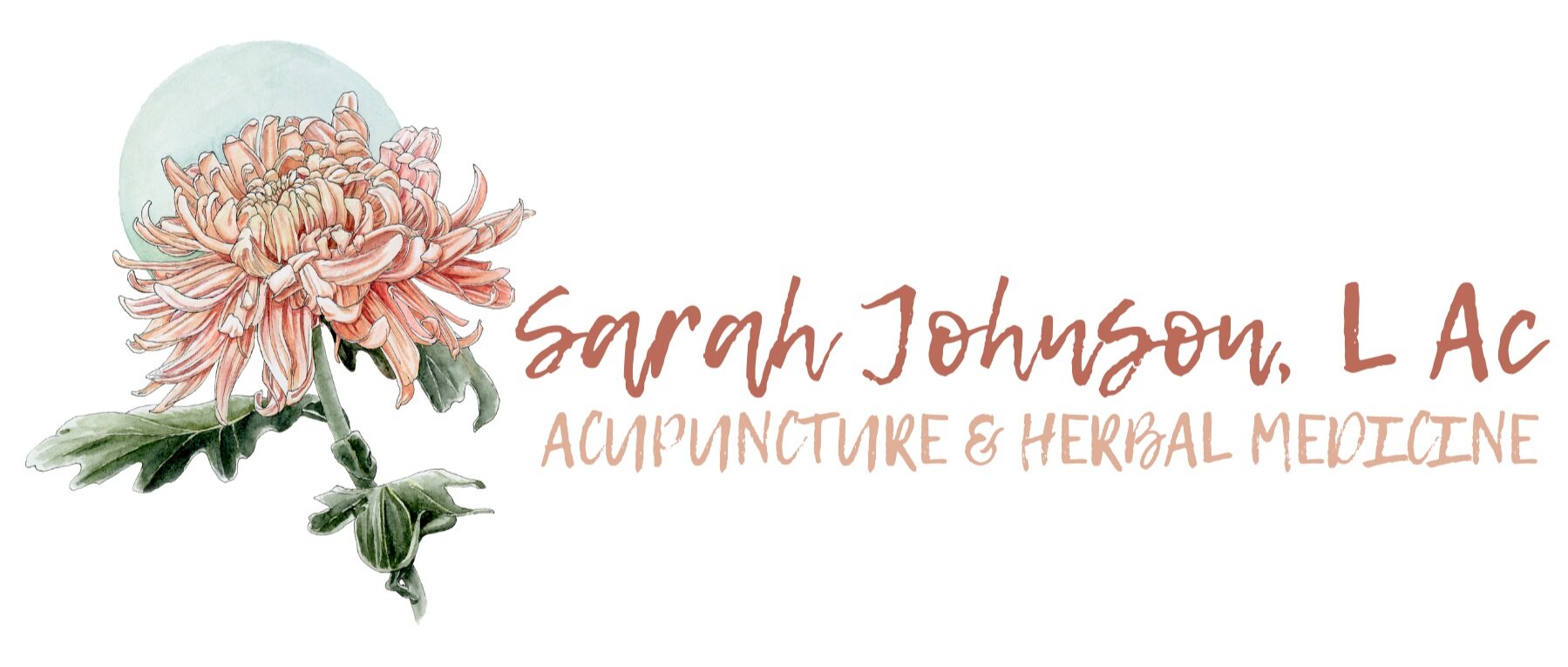7 Simple Remedies in Your Spice Rack
Herbs can be powerful medicines and have been used throughout history to treat all kinds of ailments. In my practice I often prescribe herbal formulas for anything from lowering blood pressure to fighting insomnia. Allergies, menopausal symptoms, flu, inflammation, skin problems… you name it. These formulas have been perfected over time (starting in ancient China) and are made from a combination of plant based substances with an occasional mineral or animal substance thrown in for good measure. Each substance in a formula works with the others to form a complete and balanced natural medicinal, but some of them can be taken alone to benefit your health and can be found right in your very own kitchen. In addition to using these as an ingredient in your food, most of them you can drink as a tea which is the traditional way of taking a Chinese herbal formula.
Ginger (gan jiang)
Ginger is a warm spicy herb commonly known to settle an upset tummy. It can be used effectively for most cases of nausea such as with motion sickness or morning sickness. It also stimulates blood flow so can be helpful for poor circulation (cold hands and feet) and can help to shorten the duration of a cold or flu.
Ginger is generally safe to take in large amounts. Try a tea made with 2 teaspoons fresh grated or sliced ginger root per cup of boiling water. If you want to speed up recovery from a cold or flu, add a couple teaspoons of green onion (scallion) to your tea. Bring 6 thin slices of fresh ginger root and the white part of 3 or 4 scallions to a boil and simmer for 10 minutes. Strain and drink hot.
Peppermint (Bo He)
Another stomach soother, but opposed to ginger, it is cool in nature. Peppermint relaxes the intestinal tract, relieves gas, helps nausea and indigestion, heartburn, headaches, morning sickness and IBS. In Chinese Medicine its main function is to heal heat type illnesses such as fever, sore throat, rashes, and red eyes.
Try a cup of peppermint tea made with 1 teaspoon of dried leaves or 1 tablespoon of fresh leaves per cup of boiling water. Peppermint tea is also emotionally calming. Add a little honey to sweeten, if desired.
Turmeric (Jiang Huang)
A standout in traditional Ayurvedic medicine, turmeric is a bright yellow herb found as a key ingredient in curry powder. Herbalists recommend this herb to ease the pain of inflammation, particularly of the joints, and also for its antioxidant properties, and its detoxifying effects.
Use turmeric liberally in cooking: add it to soups, veggies, and sauces. When taking supplements, follow directions on the label or the advice of an herbalist.
Garlic (da suan)
Garlic is a powerful healer with antiviral and antibacterial properties. Modern research shows that garlic can help lower cholesterol. It has also been shown to improve ulcers, lower the risk of heart attack and stroke, prevent cancer and reduce blood sugar levels.
Most herbalists recommend taking the equivalent of about one clove of raw or lightly cooked garlic a day. Garlic (especially raw) can irritate the stomach in some people. Also use caution if you have a blood clotting disorder and discontinue supplemental use two weeks before a scheduled surgery.
Fenugreek (Hu Lu Ba)
Ground fenugreek seeds are a key ingredient in curry powders and other spice blends. It has a flavor often described as similar to maple syrup. Fenugreek can help lower cholesterol levels and lower blood sugar levels in type 2 diabetics.
Make a tea by simmering 1 to 2 tablespoons of fenugreek seeds in 4 cups of water for 15 minutes. Remove from heat and let steep for another 15 minutes, then strain and drink up to three cups daily. *Fenugreek should be avoided during pregnancy; however it has a long history of use by nursing mothers to increase breast milk production.
Cinnamon (Gui Zhi)
Cinnamon is a favorite for many of us, conjuring up cozy memories of baking cookies and warm fires. A study conducted in 2005 suggests that cinnamon might be effective in lowering blood sugar levels in diabetics. It also aids in digestion by helping to break down proteins and fats. In Chinese Medicine, cinnamon warms you up and can help alleviate pain, particularly pain that is worse in cold weather.
To make a cinnamon tea, pour 1 cup boiling water over ½ teaspoon ground cinnamon in a muslin bag. Steep, covered, for 10 minutes.
Thyme
The only herb I’ve listed not found in the Chinese Herbal pharmacopeia, is a member of the mint family and helpful if you’re suffering from a cold, mucus congestion, sore throat or bronchitis. Research has shown that the herb’s expectorant properties can be attributed to the constituents thymol and carvacrol. You’ll find it in many throat sprays, lozenges and cough syrups.
To make a tea, steep 1 teaspoon of dried thyme (or one tablespoon of fresh) for 10 minutes in 1 cup of water. Strain and drink up to three cups a day.
If you are interested in using herbal medicine for something specific or to simply remain healthy, call Sarah Johnson L. Ac. and book an appointment today!




